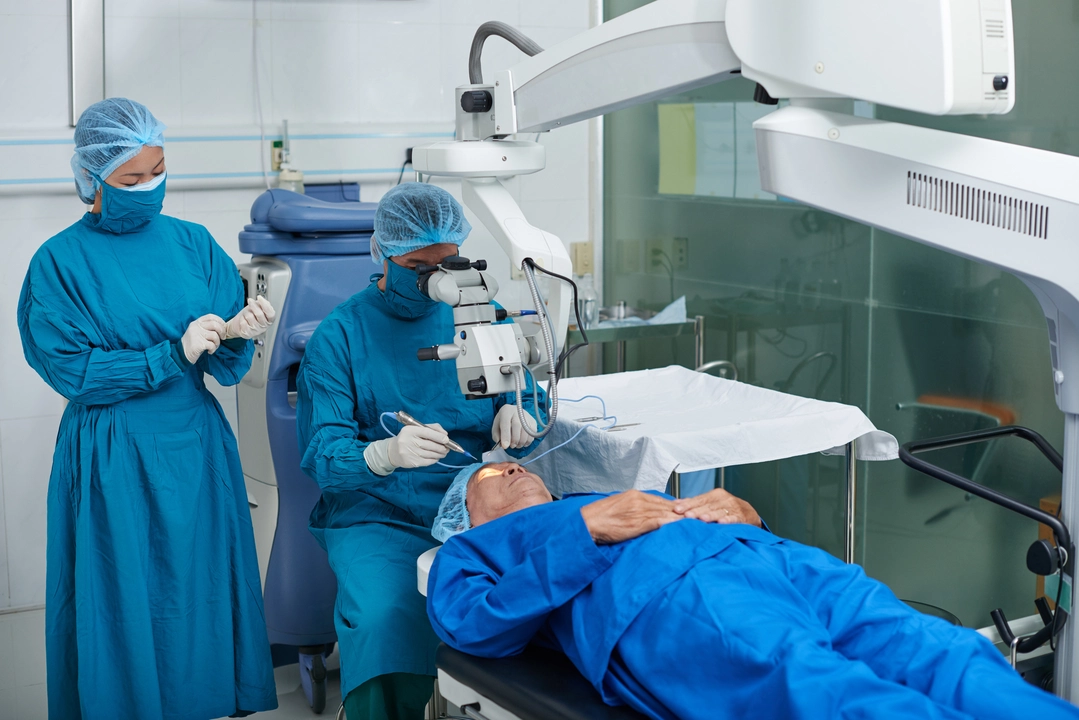Introduction to Loteprednol
As someone who has recently undergone eye surgery, you may be prescribed a medication called Loteprednol. Loteprednol is a corticosteroid eye drop that helps to reduce inflammation, pain, and discomfort after eye surgery or other types of eye injuries. In this article, we will discuss what to expect when using Loteprednol as part of your post-operative treatment, and how it can help speed up your recovery process. We will cover topics such as the proper way to use the eye drops, potential side effects, and tips for ensuring the best possible outcome for your eye health.
Proper Usage of Loteprednol Eye Drops
Using Loteprednol eye drops correctly is crucial for their effectiveness and to minimize potential side effects. Your doctor will provide specific instructions on how to use the drops, but generally, you will need to use them several times a day for a set period of time. When applying the drops, be sure to tilt your head back and gently pull down your lower eyelid to create a small pocket. Hold the dropper above your eye and carefully squeeze out one drop into the pocket. Close your eye and gently press on the inner corner of your eye for a few seconds to help the medication absorb. Remember to always wash your hands before and after using the drops, and avoid touching the dropper tip to any surface, including your eye, to prevent contamination.
Potential Side Effects
Most people using Loteprednol will not experience significant side effects, but it is essential to be aware of potential issues that may arise. Common side effects include mild burning, stinging, or itching in the eyes, as well as temporary blurred vision. These side effects are usually short-lived and should subside as your body adjusts to the medication. However, if these side effects worsen or persist, be sure to contact your doctor. More serious side effects, although rare, can include severe eye pain, vision changes, and signs of a new eye infection. If you experience any of these symptoms, contact your doctor immediately.
Interactions with Other Medications
Before starting Loteprednol treatment, it is important to inform your doctor of all medications you are currently taking, including prescription and over-the-counter drugs, as well as any vitamins or supplements. This is because there may be potential interactions between Loteprednol and other medications that could affect the effectiveness of the drops or increase the risk of side effects. Your doctor will evaluate your medication list and advise you if any adjustments are needed during your Loteprednol treatment.
Monitoring Your Progress
Throughout your treatment with Loteprednol, it is important to have regular follow-up appointments with your doctor to monitor your progress and ensure the medication is working effectively. Your doctor will assess your eye's healing and make any necessary adjustments to your treatment plan. It is essential to attend these appointments and to report any new or worsening symptoms to your doctor promptly.
Tips for a Successful Recovery
Using Loteprednol eye drops is just one part of your post-operative care. To ensure the best possible outcome for your eye health, be sure to follow all of your doctor's instructions regarding activity restrictions, eye care, and any additional medications you may be prescribed. Some general tips for a successful recovery include:
- Avoid rubbing or touching your eyes, as this can cause irritation and slow down the healing process.
- Wear sunglasses to protect your eyes from harmful UV rays and bright light.
- Keep your eyes clean and avoid contact with potential contaminants, such as dirty hands, makeup, or contact lenses.
- Stay hydrated and maintain a healthy diet, as proper nutrition can play a role in your eye health and overall recovery.
When to Stop Using Loteprednol
It is crucial to use Loteprednol for the full duration prescribed by your doctor, even if your symptoms seem to have improved. Stopping the medication too soon may cause a relapse of inflammation and delay your recovery. Your doctor will advise you on when it is safe to stop using Loteprednol, typically once your eye has fully healed and the risk of inflammation has subsided.
Final Thoughts
Post-operative treatment with Loteprednol can play a significant role in promoting a fast and comfortable recovery after eye surgery. By using the medication correctly, being aware of potential side effects, and following your doctor's advice, you can ensure the best possible outcome for your eye health. If you have any concerns or questions about your treatment, do not hesitate to discuss them with your doctor, who will be more than happy to help guide you through the recovery process.






Amreesh Tyagi
May 11, 2023 AT 20:33Loteprednol? Just another hype drop
Brianna Valido
May 11, 2023 AT 21:56Thanks for the clear guide! 😊 Keep up the good work!
Caitlin Downing
May 11, 2023 AT 23:20I love how you broke down the steps-super easy 2 follow! The only thing I’d add is to double check the expiration date, cuz old drops can be a pain.
Robert Jaskowiak
May 12, 2023 AT 00:43Oh wow, because everyone just loves reading about expiration dates-what a thrill.
Julia Gonchar
May 12, 2023 AT 02:06Actually, Loteprednol is a soft steroid, meaning it has a lower risk of increasing intraocular pressure compared to others like dexamethasone.
Annie Crumbaugh
May 12, 2023 AT 03:30Looks solid, I’ll keep it in mind if I need eye surgery.
Vic Harry
May 12, 2023 AT 04:53Don’t forget that American doctors know best you don’t need foreign meds
Suman Wagle
May 12, 2023 AT 06:16If you think it’s hype, maybe you’ve never felt the sting of post‑op inflammation-then you’ll appreciate the calm it brings. The drop’s anti‑inflammatory power can really speed up healing when used correctly. It’s not magic, but it’s a solid part of the protocol.
Neil Sheppeck
May 12, 2023 AT 07:40Loteprednol is a nifty tool in the post‑operative toolbox, but it works best when paired with a holistic recovery plan.
First, adhere to the dosing schedule your surgeon gave you, because missing doses can let inflammation creep back in.
Second, protect your eyes from bright light and dust by wearing sunglasses or a protective shield when you’re outside.
Third, keep your hands clean and avoid touching or rubbing the operated eye, even if the irritation tempts you.
Nutrition matters too; omega‑3 fatty acids and Vitamin A can support ocular healing, so consider adding fish or leafy greens to your meals.
Hydration is often overlooked, yet a well‑hydrated body can clear inflammatory mediators more efficiently.
If you notice a persistent burning sensation or blurry vision beyond the first couple of days, flag it to your doctor without hesitation.
While rare, elevated eye pressure can sneak up on steroid users, so an intra‑ocular pressure check during follow‑up visits is wise.
Don’t feel guilty about using artificial tears alongside Loteprednol; they can lubricate the surface and make the drop administration smoother.
If you’re on other eye medications, like antibiotics or anti‑glaucoma drops, coordinate the timing to avoid wash‑out effects.
Some patients find that a gentle warm compress before applying the drop helps the medication spread more evenly.
Remember that the “stop” date is as important as the “start” date; tapering off too quickly can cause a rebound inflammation.
In my experience, a supportive community-whether online forums or friends who’ve been through similar surgeries-can boost morale during the recovery stretch.
Finally, celebrate small milestones, like being able to read a book or drive without glare, because recovery is a marathon, not a sprint.
Stay patient, stay informed, and trust the process; the eyes will thank you in the end.